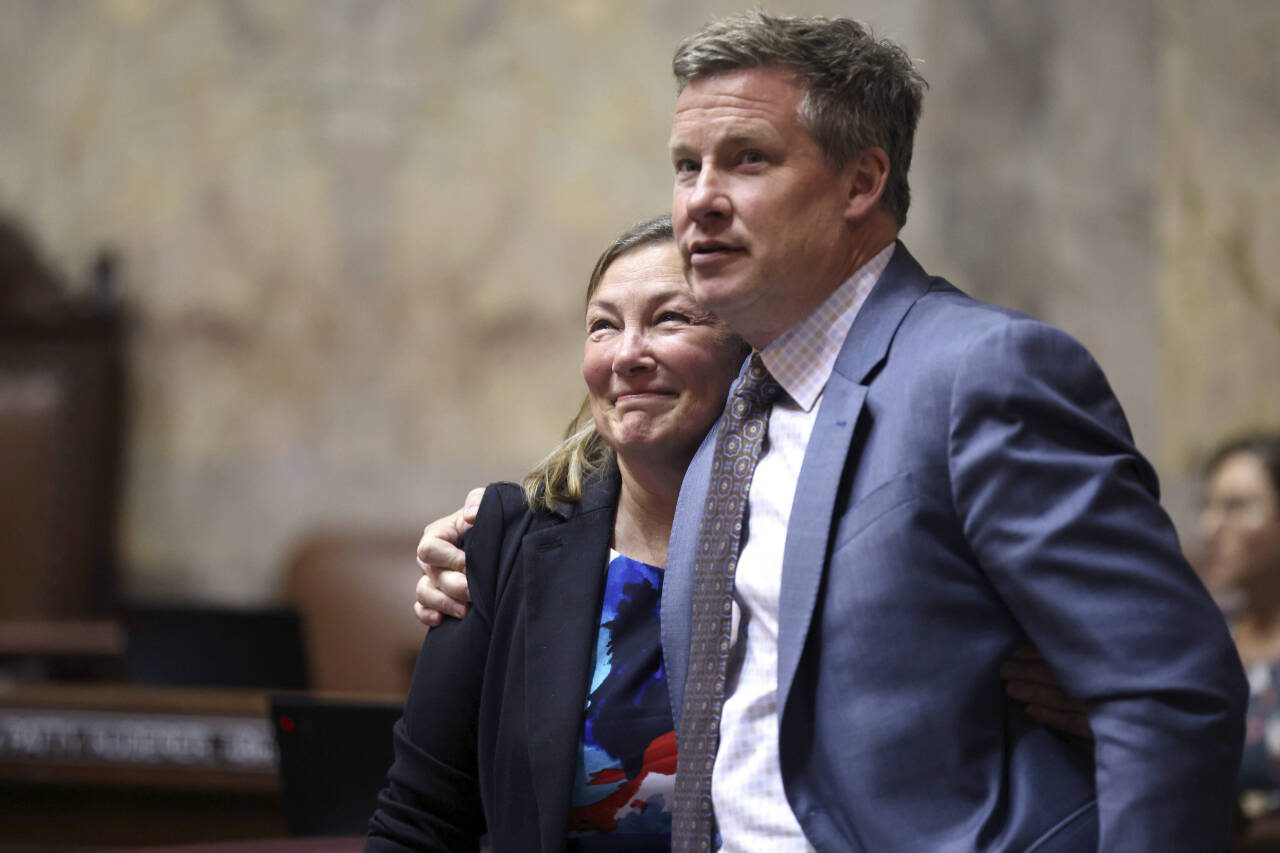By The Herald Editorial Board
If you thought the legislative path was tortured regarding an overhaul of state law regarding drug possession and public drug use, the harder work is only now beginning for local officials, law enforcement, treatment programs, health care facilities, the public and — most importantly — those struggling with addictions, themselves, to make that new approach work.
Tuesday, in a one-day special session, House and Senate agreed — and the governor quickly signed — what’s been referred to as the Blake fix, an attempt to recraft the approach to drug possession, public use and addiction following the 2021 state Supreme Court “Blake” decision that found the state’s felony law on drug possession was unconstitutional because it could convict someone who unknowingly possessed narcotics. A stop-gap measure, which expires July 1, reclassified possession as a misdemeanor but also frustrated law enforcement and local jurisdictions because of unworkable requirements regarding officers’ contact and referrals to drug assessment and treatment for those found in possession.
Senate Bill 5536, sponsored by state Sen. June Robinson, D-Everett, looked like an acceptable deal to local officials looking for more leverage in leading those with addiction into treatment programs. It would have increased possession to a gross misdemeanor with stiffer penalties and encouragements for diversion programs and other provisions and had bipartisan support in the Senate and early support in the House. But amendments killed the bill late in the session — in particular one that local jurisdictions — including a campaign led by Snohomish County mayors — objected to because it appeared to tie local governments’ hands regarding harm-reduction programs that organizations might seek to introduce in select communities, including needle-exchanges and safe-use facilities.
The legislation failed in the final hours, opposed by some Democrats who objected to what they saw as a recriminalization of possession and Republicans who sided with local officials on the harm-reduction measures.
What came out of the one-day session was closer to what was originally passed out of the Senate. The final version, which passed 83-13 in the House and 43-6 in the Senate:
• Makes drug possession a gross misdemeanor, with a penalty of up to 180 days in jail and a maximum fine of $1,000 for the first and second offenses. After a second conviction, the penalty increases to up to 364 days in jail; the penalties are the same for public drug use.
• Pretrial diversion treatment programs are offered, with approval of prosecutors. And those who complete treatment requirements can seek to have drug convictions vacated.
• Allocates $63 million in funding for treatment and other programs.
• And allows cities and counties to set their own standards for harm-reduction programs in their communities. The bill also requires the state Department of Health to notify newspapers and other media outlets when the agency is deciding to license a medication-assisted opioid treatment program in a specific community.
It’s not clear that this would have applied to the recent move from Bothell to Lynnwood of Acadia Healthcare, which administers methadone and other medication, as well as counseling services for those with opioid addictions. Lynnwood residents and city officials objected to the move, but as the facility already had Department of Health approval, its move wasn’t subject to the city’s OK. The city has, however, begun a six-month moratorium for such facilities.
Regardless, the provision to notify media seems reasonable, as communities deserve to know about decisions to provide such services. But that notification should be used — rather than to block such treatment programs — to better educate communities about the services they provide and their record of success in treating those with addiction to fentanyl and other opioids.
State Rep. Lauren Davis, D-Shoreline, was one of those voting against the bill’s passage in the House, specifically objecting to the provisions regarding harm reduction and media notification.
“This bill not only handcuffs suffering people, but it handcuffs the two tools that we have to combat the fentanyl crisis,” Davis said on the House floor. “We were called back here by the governor to solve a problem. This bill doesn’t solve the problem, Madam Speaker. It makes it worse.”
That’s a potential outcome, but again not a guarantee, provided that attitudes about addiction and treatment services and harm-reduction programs — fentanyl testing, perhaps — are better explained and provided fair consideration by officials and residents to show their effectiveness and safety.
For a fair review of the spectrum of opinions regarding addiction and treatment — including the views of those who have experienced both — readers should review a recent article by Herald reporter Sophia Gates, who interviewed those who provide treatment and those who are participating in treatment. Among those, Gates’ story finds, is a range of perspectives and opinions about how useful the now passed criminal penalties, which will take effect July 1, will be in moving those with addictions into treatment and sobriety.
For Jennifer Cunningham, a recovery coach and resource coordinator for Everett Recovery Cafe, the arrests and criminal penalties for possession aren’t adequate to fix the problem and are like “going to the walk-in clinic for a gunshot wound. You’re just putting a Band-Aid on (the problem).”
Yet, Nichole Speaks, executive director for Courage to Change Recovery Services, sees those arrests and legal consequences as assuring a more certain introduction to treatment and its completion.
“Just jail by itself is not a solution,” she said. But “no consequence is not a solution, either.”
Few pieces of legislation will satisfy everyone, but the passage of SB 5536 in its current form, allows local jurisdictions, state agencies, treatment and health care providers and community members to work closely to assure better access to treatment, a move away from the stigma that discourages treatment and toward outcomes that assure individual health and community safety.
Talk to us
> Give us your news tips.
> Send us a letter to the editor.
> More Herald contact information.

























